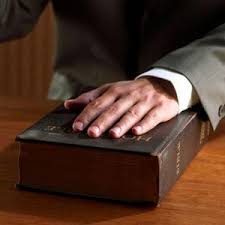
20 Aug What If Your Opponent Changes Her Testimony At Deposition Or “Pleads the Fifth”?
Last week we talked about depositions, one of the most important—and sometimes most uncomfortable—parts of the discovery process. Depositions can be long, and grueling, as you or your opponent is asked questions for potentially 7 or more hours in a room with a court reporter and other parties to the litigation. While there are many parts of the process you and your attorney can prepare for prior to the deposition, there are some parts that cannot be controlled.
As mentioned last week, neither you nor your attorney can prevent your opponent’s attorney from asking improper questions or making improper speaking objections; however these situations can be controlled by your attorney, who can protect you and your company’s interests by objecting to improper questions and stopping the deposition, if necessary.
But what if your opponent appears to lie or change her testimony under oath? What if the witness tries to “plead the fifth”? Is there anything you or your attorney can do to stop him or her?
The Witness Who Changes His Testimony After a Break
You may experience a situation during deposition where your opponent asks for a break after answering a question. After the break, the witness may state on the record that he needs to clarify or change the testimony he provided before the break. If your opponent changes her testimony, your attorney can take certain steps to confirm the accuracy of the changed testimony.
Depending on the state where the deposition is taking place, your attorney may be able to ask the witness about the substance of any “off-record” conversations he had with his attorney during the break. Courts are divided on whether conversations between a witness and his attorney during breaks in a deposition are privileged.
Some courts prohibit a witness and her attorney from discussing the substance of the testimony already given or anticipated to be given, unless the conversation is about whether to assert a privilege, such as the attorney-client privilege. In these jurisdictions, if the witness refuses to answer your attorney’s questions, or if your opponent’s attorney refuses to let the witness answer the questions, your attorney can later obtain this information in the discovery process. Not only can your attorney get the contents of those conversations, but he can also review any notes or texts that the witness and his attorney exchanged during the deposition.
However there are other courts, such as Colorado, that have held that a witness’s off-the-record conversations with her attorney during breaks is protected by the attorney-client privilege.
Regardless of which state you are in, your attorney should ask the following series of questions to make a record for a potential motion:
- Did you testify truthfully before the break?
- Did you talk with your attorney during the break?
- Please repeat everything you and your attorney said during the break (ask only if you are in a jurisdiction that allows inquiry into the witness’s conversations with his attorney).
- Why did you change your testimony?
- How would you like to change your testimony?
Also, during this line of questioning, your attorney should make sure to characterize the witness’s new testimony as a change in testimony, not just a clarification.
The Witness Who Pleads the Fifth
A witness may also surprise you and your attorney by trying to plead his Fifth Amendment privilege against self-incrimination. When a witness attempts to assert his Fifth Amendment rights, your attorney must ensure that she leaves the deposition with a transcript that reflects precisely not only the topics that the witness agreed to testify about, but also the topics that the witness refused to answer. This ensures the court, if necessary, can easily review the deposition transcript to make sure the privilege was properly invoked. The record in certain circumstances could also be read or shown to the jury.
Also, before going into the deposition, your attorney should have some basic understanding of the privilege. For example, the privilege can only be asserted if the witness reasonably believes her testimony could be used against her in a state or federal criminal proceeding. The privilege cannot be used to avoid a non-criminal consequence, such as a civil lawsuit. Also, the privilege cannot be asserted on behalf of a corporation. And the privilege, if asserted, must be asserted timely and as to each question or it is waived.
If the witness does successfully assert the privilege in a civil proceeding, your attorney may still be able to motion the court for relief to “offset” the resulting prejudice to you and your company. For example, your attorney could ask the court to (1) prohibit the witness from testifying about the same subject matter at trial; (2) permit the jury to infer a reasonable adverse inference about the party invoking the privilege; or (3) stay the civil case until the related criminal case is resolved.
If you or your company expect to depose a difficult witness, call Edwards Law today to discuss a legal strategy suitable for your case.


No Comments